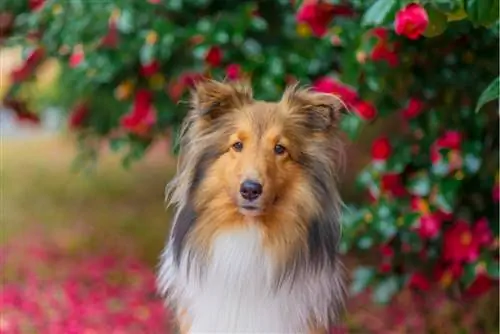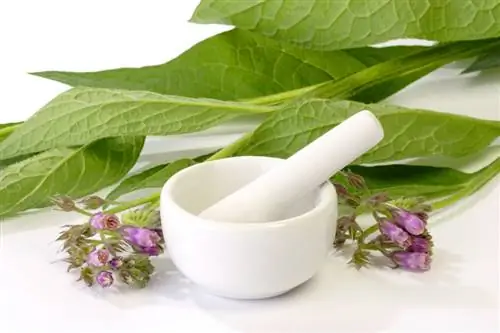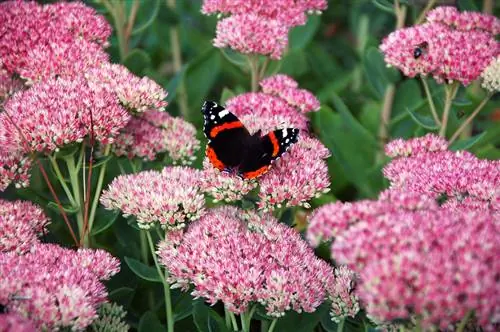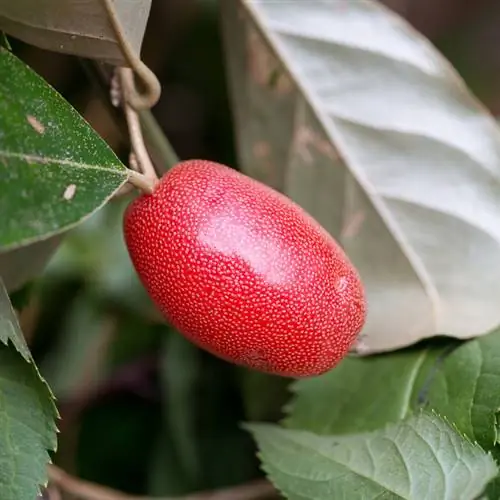- Author admin [email protected].
- Public 2023-12-16 16:46.
- Last modified 2025-01-23 11:22.
Poisonous plants can have dangerous consequences for dogs. Puppies in particular, who explore the world and nibble on anything that could be edible, are at risk from such plants in the house and garden. In this article we clarify whether camellia is also poisonous for dogs.
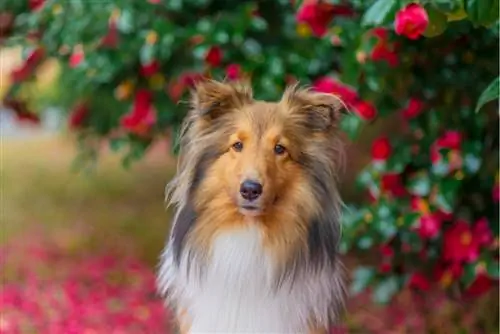
Are camellias poisonous to dogs?
Camellias are not poisonous to dogs because they contain no toxins and have only small amounts of caffeine. However, consumption of camellia leaves should be avoided as chemical pesticides such as insecticides, herbicides and fertilizers can be harmful to he alth.
Safe for dogs
Because fiber stimulates digestion, many dogs like to eat grass and other green plants. Therefore, the animals may be tempted to eat some of the very robust camellia leaves. Since these can hardly be digested, severe vomiting can occur as a result.
However, the foliage of the camellia, which belongs to the tea plant family, contains no toxins and only small amounts of caffeine. These are so small that the animals would have to eat a lot of leaves to feel any effect at all. For this reason, there is nothing in the literature to say that the Japanese rose is poisonous to four-legged friends.
Why shouldn't my dog eat camellia leaves?
Newly purchased camellias may contain toxins on the leaves that have a negative impact on the dog's he alth.
- Insecticides,
- Herbicides
- Fertilizers
at best only lead to indigestion. However, the harmful substances could also cause serious illnesses. This is especially the case if it is a small puppy whose digestive system is still very vulnerable.
For this reason, you should avoid using chemical pesticides in a dog household. If this is unavoidable, always use the preparations so that the dog cannot reach the plants. It is better to only use natural remedies that usually work just as well but are harmless to your four-legged friends.
Tip
If a dog moves in with you, you should ban poisonous plants from your house and garden. This ensures that the animals do not accidentally chew on parts of a poisonous plant while exploring their surroundings. Remember that poisoning can, in the worst case scenario, be life-threatening for the animal.

